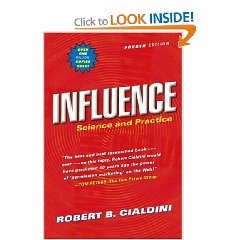Wow, wow, holy cow….I am rushing to finish up a book on Information Operations: All Information, All Languages, All the Time, and I am so very pleased to have gotten to this absolute gem of a book before closing out. Compared to the other 200 or so books I have reviewed–including such gems at ATTENTION, Real-Time, Early Warning, and so on, this is clearly a “top ten” read in the literature on information art & science.
Halfway through the book I was torn by a sense of anguish (the U.S. Intelligence Community and the beltway bandits that suck money out of the taxpayers pocket through them have no idea how to implement the ideas in this book) and joy (beyond Google, through Wikis and other collective intelligence endeavors facilitated by open source software, relevant findability is possible).
This is a truly gripping book that addresses what may be the most important challenge of this century in a compelling, easy to read, yet intellectually deep and elegant manner.
The author is a true guru who understands that in the age of a mega-information-explosion (not just in quantity, but in languages, mediums, and nuances) the creation of wealth is going to depend on information being useful, usable, desireable, findable, accessible, credible, and valuable (page 109).
Especially important in the first half of the book are the author's focus on Mooers (not to be confused with Moores) who said in 1959 that users will make do with what information they have when it becomes too inconvenient to go after better information. This is key. At the same time, he focuses on the difference between precision and recall, and provides devasting documentation of the failure of recall (1 in 5 at best) when systems scale up, as well as the diminuition of precision. Bottom line: all these beltway bandits planning exobyte and petabyte databases have absolutely no idea how to actually help the end-user find the needle in the haystack. This author does.
The book is without question “Ref A” for the content side of Information Operations. On page 61 I am just ripped out of my chair and on to my feet by the author's discussion of Marcia Bates and her focus on an integrated model of information seeking that integrates aesthetic, biological, historical, psychological, social, and “even” spiritual layers of understanding. This is bleeding edge good stuff, with nuances that secret intelligence world is not going to understand for years.
There is a solid discussion of geocoding and locationally aware devices, and I am very pleased to see the author recognize the work of four of my personal heroes, Stewart Brand, Bruce Sterling, Kevin Kelly, and Howard Rheingold.
Halfway through the book he discusses the capture of life experiences, and the real possibility that beyond today's information explosion might lie an exo-explosion of digital data coming from wired individuals feeding what they see and hear and feel into “the web”. The opportunities for psycho-social diagnosis and remediation, and cross-cultural communication, are just astounding.
The book wraps up with a great review of findability hacks, semantic tricks, and the trends to come in inspired and informed decisions. Like Tom Atlee, the author sees the day of collective intelligence enabled by the web, but I have to say, I thought I knew a lot, after reading this book I have the strongest feeling that my education has just begun.
This is one of those books that could help define an era. It is about as thoughtful, useful, and inspiring a book as I have read in the past several years. DECENT!










